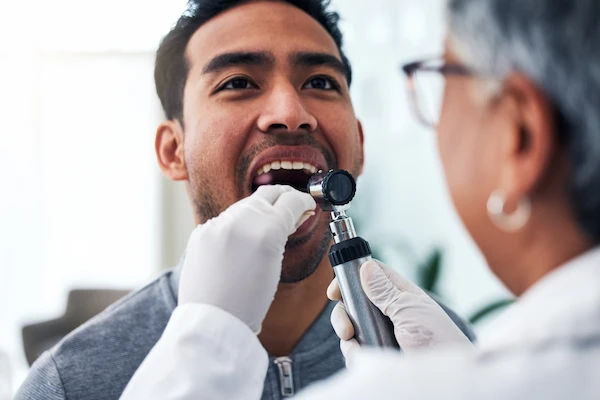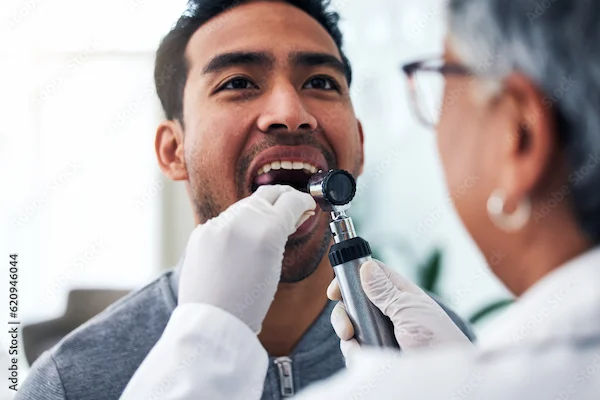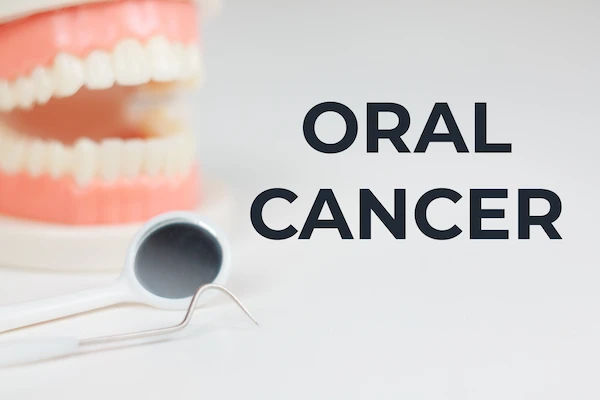Oropharyngeal Cancer Symptoms Explained
Know about oropharyngeal cancer, causes, symptoms, how is it diagnosed, preventive measures and when to see the specialist.

Written by Dr. J T Hema Pratima
Reviewed by Dr. D Bhanu Prakash MBBS, AFIH, Advanced certificate in critical care medicine, Fellowship in critical care medicine
Last updated on 5th Aug, 2025

Introduction
Facing a potential cancer diagnosis can be overwhelming, but understanding the symptoms early can make a big difference. Oropharyngeal cancer affects the part of the throat just behind the mouth, including the tonsils, base of the tongue, and soft palate.
Recognizing the signs early can help in seeking timely medical attention and improving treatment outcomes.
In this article, we’ll explain the common symptoms of oropharyngeal cancer, what causes it, and how you can manage your health.
What is Oropharyngeal Cancer?
Oropharyngeal cancer develops in the oropharynx—the middle part of the throat that includes:
The tonsils
The base of the tongue
The soft palate (back part of the roof of the mouth)
The side and back walls of the throat
This type of cancer is often linked to the human papillomavirus (HPV), smoking, and heavy alcohol use. Early detection is crucial for effective treatment.
Consult a top cancer specialist for the best advice
Common Symptoms of Oropharyngeal Cancer
The symptoms of oropharyngeal cancer can sometimes be mistaken for common throat infections. However, if these signs persist for more than a few weeks, it’s important to see a doctor.
1. Persistent Sore Throat
A sore throat that doesn’t go away, even after antibiotics or other treatments.
Pain or discomfort while swallowing.
2. Difficulty Swallowing (Dysphagia)
Feeling like something is stuck in your throat.
Pain or burning sensation when swallowing food or liquids.
3. Lump in the Neck or Throat
A painless lump or swelling in the neck (often the first noticeable sign).
A feeling of fullness or a mass in the throat.
4. Unexplained Weight Loss
Losing weight without trying could be a sign of cancer affecting eating habits.
5. Ear Pain
Persistent earache, especially on one side, without an ear infection.
6. Voice Changes
Hoarseness or a change in voice that lasts longer than two weeks.
7. White or Red Patches in the Mouth/Throat
Unusual patches on the tonsils, tongue, or throat lining.
8. Bad Breath or Metallic Taste
Chronic bad breath that doesn’t improve with oral hygiene.
A persistent metallic taste in the mouth.
What Causes Oropharyngeal Cancer?
Several factors increase the risk of developing this cancer:
1. HPV Infection
HPV (especially HPV-16) is a leading cause of oropharyngeal cancer.
It spreads through intimate contact, including oral sex.
2. Tobacco and Alcohol Use
Smoking cigarettes, cigars, or chewing tobacco significantly raises the risk.
Heavy alcohol consumption further increases the chances.
3. Poor Diet
A diet low in fruits and vegetables may contribute to higher risk.
4. Weak Immune System
People with weakened immunity (due to HIV/AIDS or immunosuppressive drugs) are at higher risk.
When to See a Doctor?
If you experience any of the following for more than 2-3 weeks, consult a doctor:
Persistent sore throat
Difficulty swallowing
Unexplained lump in the neck
Voice changes
Unexplained weight loss
Early diagnosis improves treatment success rates.
How is Oropharyngeal Cancer Diagnosed?
If your doctor suspects oropharyngeal cancer, they may recommend:
1. Physical Exam – Checking the throat, neck, and mouth for lumps or abnormalities.
2. Endoscopy – A thin, flexible tube with a camera examines the throat.
3. Biopsy – Removing a small tissue sample for lab testing.
4. Imaging Tests – CT scans, MRIs, or PET scans to check cancer spread.
Tips for Prevention and Early Detection
1. Get Vaccinated Against HPV
The HPV vaccine (Gardasil, Cervarix) helps prevent HPV-related cancers.
2. Quit Smoking and Limit Alcohol
Reducing tobacco and alcohol use lowers cancer risk.
3. Maintain Good Oral Hygiene
Regular dental check-ups can help detect early signs.
4. Eat a Healthy Diet
Include fruits, vegetables, and whole grains to boost immunity.
5. Regular Self-Exams
Check your mouth and throat for unusual changes.
Final Thoughts
Oropharyngeal cancer is treatable, especially when caught early. Knowing the symptoms and risk factors can help you take action sooner. If you or a loved one experiences any warning signs, consult a doctor without delay.
Consult a top cancer specialist for the best advice
Consult a top cancer specialist for the best advice

Dr Sunita Samleti
Oncologist
18 Years • M.D. (Pathology)- TN Medical College, Mumbai University, Mumbai, Mar 2005 M.B.B.S. Grant Medical College, Mumbai University, Mumbai, Oct 1999
Chinagadila
Apollo Hospitals Health City Unit, Chinagadila

Dr Gowshikk Rajkumar
Oncologist
10 Years • MBBS, DMRT, DNB in Radiation oncology
Bengaluru
Apollo Clinic, JP nagar, Bengaluru

Dr. Sanchayan Mandal
Oncologist
17 Years • MBBS, DNB Raditherapy, DrNB Medical Oncology
East Midnapore
VIVEKANANDA SEBA SADAN, East Midnapore
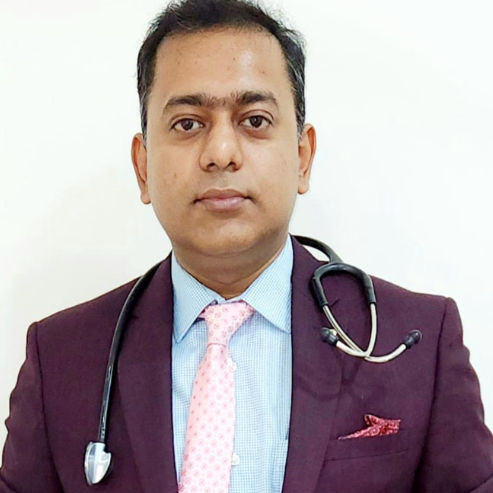
Dr.sanchayan Mandal
Oncologist
17 Years • MBBS, DrNB( MEDICAL ONCOLOGY), DNB (RADIOTHERAPY),ECMO. PDCR. ASCO
Kolkata
Dr. Sanchayan Mandal Oncology Clinic, Kolkata
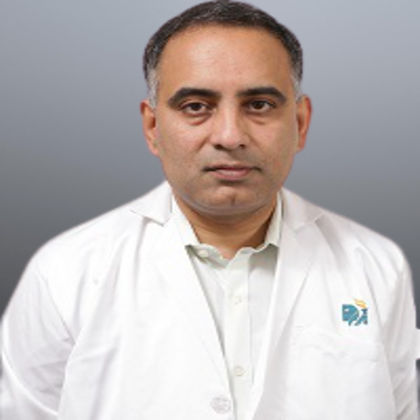
Dr. Raja T
Oncologist
20 Years • MBBS; MD; DM
Chennai
Apollo Hospitals Greams Road, Chennai
(175+ Patients)

